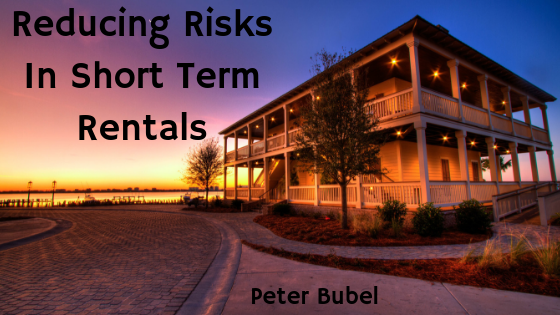Short-term rentals are a great way to make more money on rental investments. Unfortunately, they can also come with some heavy financial risks. What happens when tenants damage the rental or security becomes a problem? What about short-term renters who ignore building policies? In order to reduce the risks, there are several steps owners can take.
Control Entry
The only people who should be in a short-term rental are those who are named by the document they’ve signed. That means no unexpected visitors, from added kids that the renter “forgot” to mention to added guests who visit during the renter’s stay. Using passwords or keys can help reduce unexpected additions to rental units, as can proper education of front desk staff and security team members. Making sure everyone is aware of what’s needed will help prevent unauthorized access to the building and keep everyone safer.
Add Fines and Penalties
Short-term renters are more likely than long-term ones to ignore building rules. After all, they’re only there for a short time, and there’s little risk that they’ll be evicted. They may also care less about the upkeep of the building. By imposing fines and penalties for guests who fail to follow the rules, however, it’s possible to reduce the odds that they’ll break the rules. Those fines and penalties should be clearly included in the rulebook and agreement provided to the renter before they book the property and in a location, they can see during their stay.
Know the Rules
Each building has its own rules when it comes to short-term renters. In each building, there may be specific requirements for guests or regarding renting out properties on a short-term basis. Each owner should clearly understand the rules associated with short-term rentals to help prevent any breach of their own contracts–and to prevent them from seeing serious penalties later. Following those rules is just as critical for owners as it is for short-term renters.
Making sure the rules are clear to both owners and short-term renters is a critical part of the short-term rental experience. With careful attention to those details, it’s possible to enjoy the income generated from short-term renters, whether the owner wants to make an additional property available for vacation renters or simply wants to earn money from their home through Airbnb or another platform while they’re on vacation.

